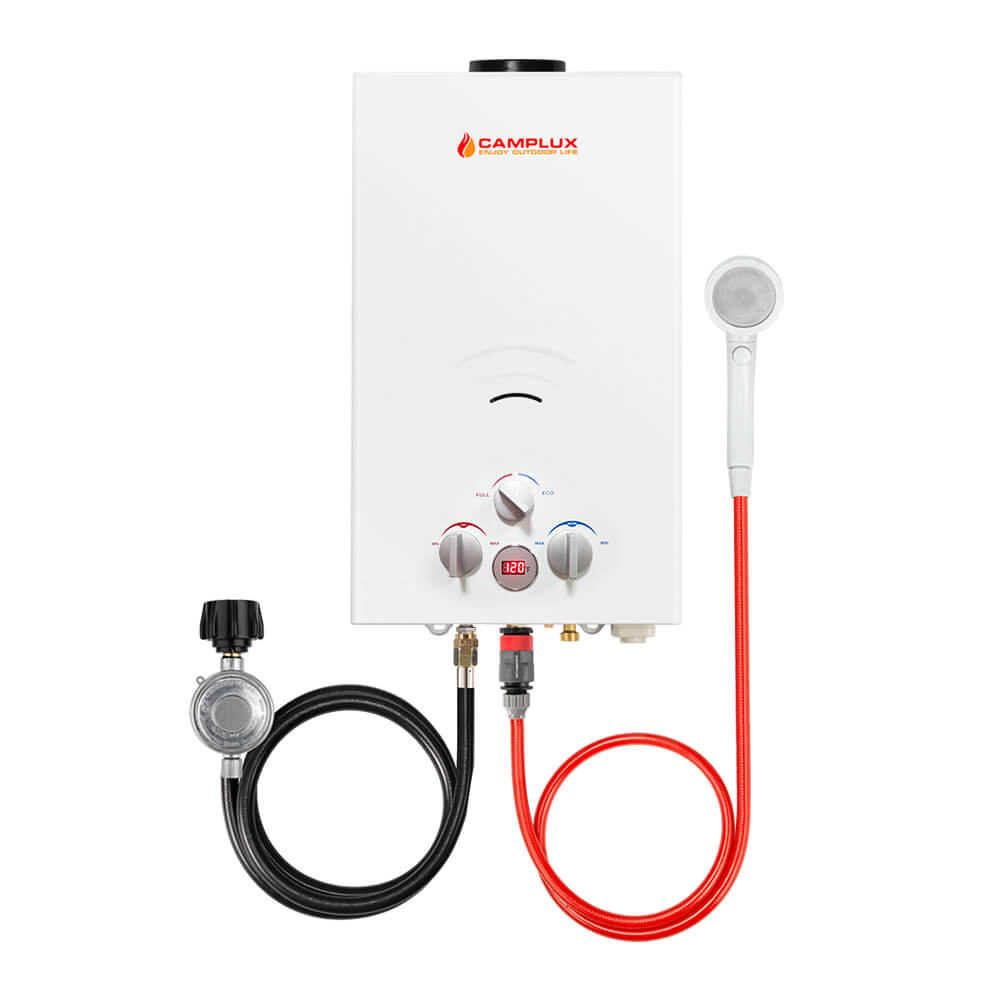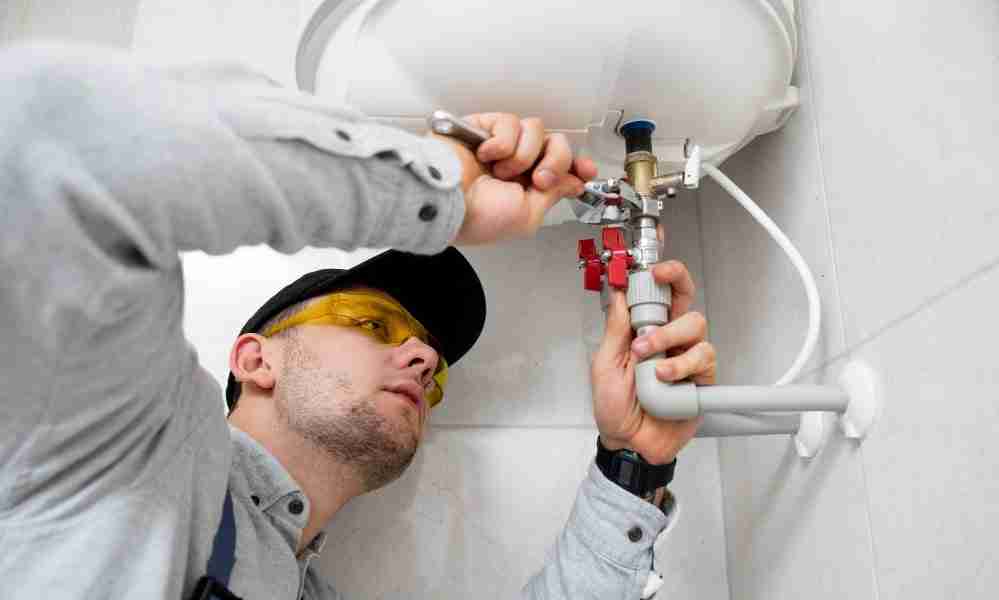Have you been hunting for insight involving 5 Benefits of Tankless Water Heaters?

In a world where benefit and effectiveness reign supreme, it's no surprise that homeowners are continuously in search of smarter ways to manage their home's power intake and comfort. One technology that has actually gradually gotten appeal is the tankless water heater. But exactly what makes these systems attract attention from the conventional tank-based models the majority of us grew up with? Let's dive in and check out the benefits of tankless water heaters, assisting you make a decision if it's time to make the button in your house.
Introduction
Image this: you step into the shower after a lengthy day, expecting a soothing waterfall of hot water, just to be greeted by icy beads because the last person utilized all of it up. Sound acquainted? Traditional water heaters keep a set quantity of hot water, implying you're at the mercy of that tank's supply. Tankless systems, on the other hand, warm water on demand. Say goodbye to running out mid-shower, no more wrestling with schedules simply to make certain warm water is available.
Understanding Tankless Hot Water Heater
What Are Tankless Hot Water Heater?
Tankless hot water heater, sometimes known as on-demand or instant water heaters, provide hot water just as it's required. As opposed to keeping gallons of pre-heated water, these systems kick into action the moment you activate the faucet. Water goes through a heat exchanger, warming up in real-time, implying you get a continuous circulation of hot water without the need for a big storage tank sitting idly by.
How Do They Vary from Conventional Systems?
Typical heaters hold a storage tank of hot water, utilizing power to keep that storage tank at a regular temperature level. Tankless devices eliminate the standing supply, minimizing squandered power and the large impact of a large cylinder. Essentially, you're updating from a "accumulation" attitude to a "made-to-order" approach.
Common Types of Tankless Units
Tankless water heaters typically can be found in 2 selections: gas and electrical. Gas versions tend to deliver higher flow prices, perfect for bigger houses, while electrical versions usually offer smaller homes and are usually less complicated to set up. Furthermore, some systems are developed for point-of-use (offering one component) while others can deal with the whole home's warm water demands.
Trick Advantages of Tankless Hot Water Heater
Power Performance and Cost Cost Savings
No more heating up a titan container's well worth of water and keeping it cozy all day. Tankless heating units reduce standby energy losses, which can reduce energy bills. While the preliminary price might be greater, the long-term cost savings frequently validate the financial investment.
3. Space-Saving Layout
If your home is short on storage, eliminating the large container liberates beneficial space. Tankless units are small and can commonly be placed on wall surfaces, stashed in edges, or set up in tight utility storage rooms without grabbing all of the whole room.
4. Longer Life expectancy
A well-kept tankless hot water heater can outlast its tank-based cousin. Traditional tanks might last 10-15 years, while tankless versions can keep downing along for 20 years or even more, making them a solid investment with time.
1. Endless Warm Water Supply
Ever before had to set up showers so every person obtains their reasonable share of hot water? With tankless, that comes to be a thing of the past. As long as the heating system's flow capability isn't gone beyond, you can take back-to-back showers without turning into a popsicle.
5. Improved Water High Quality
Saving water in a tank can often bring about sediment accumulation or a somewhat "off" preference. With tankless systems, fresh water is warmed right away, decreasing the opportunities of sediment accumulation and potentially offering cleaner-tasting water.
Considerations Before Changing
Though the benefits are compelling, it's a good idea to think about a few elements before fully committing.
Reviewing Your Home's Water Use Patterns
If your family all at once makes use of multiple fixtures with high warm water need, see to it the device's circulation price meets your needs. Understanding your use patterns aids you select the ideal dimension and sort of tankless heating system.
Maintenance and Care Tips
Tankless systems are reasonably reduced maintenance, yet they aren't set-it-and-forget-it appliances.
Normal Cleaning and Descaling
Hard water minerals can accumulate in the warm exchanger, impacting effectiveness. Normal descaling (usually suggested each year) maintains the unit running at peak performance.
Annual Specialist Inspections
A yearly checkup from an expert makes certain minor problems are captured early. They'll assess the system's performance, try to find leaks, and assist preserve ideal effectiveness.
First Investment Expenses
Tankless heating units commonly feature a greater in advance price tag. In between the device itself and prospective installation alterations, the initial cost could give you sticker shock. Yet bear in mind to see it as a long-lasting investment.
Setup Requirements
Depending on your home's facilities, you may need extra electrical ability or gas line upgrades. Ensure you understand the setup needs and consult with an expert to avoid surprises.
Ensuring Proper Ventilation
For gas models, proper ventilation is vital to safely expel exhaust gases. Make sure airing vent systems are tidy and correctly set up to stop any potential security dangers.
Comparing Different Brands and Models
Not all tankless water heaters are produced equal.
Looking Into Trustworthy Suppliers
Try to find trustworthy brand names with a history of producing top quality systems. A trustworthy manufacturer usually offers much better customer support and longer service warranties.
Installation: Do It Yourself or Specialist?
While some property owners cherish taking on projects themselves, tankless setup may not be the most effective time to burst out the toolbox.
Benefits and drawbacks of DIY Installation
A do it yourself install might conserve money, yet it features risks. Wrong setup can lead to inadequacy or security concerns. If you're handy and have experience, it might be viable-- but wage care.
Reading Reviews and User Feedback
User reviews and feedback from neighbors or good friends that have actually gone tankless can use important insights. In some cases, real-life experiences can be more informing than advertising sales brochures.
When to Call an Expert Plumbing Technician
For a lot of, calling a pro ensures whatever's done appropriately. An expert plumber comprehends neighborhood codes, sizing requirements, and venting criteria, reducing the danger of problems.
Optimizing Performance
You've purchased a tankless device-- currently maximize its effectiveness.
Ideal Temperature Settings
Most people set their devices in between 120-140 F. Changing the temperature can enhance comfort and savings. Experiment to discover a wonderful place that does not lose power.
Coupling With Low-Flow Fixtures
Intend to extend your system's abilities? Think about setting up low-flow showerheads and faucets. They lower water use, enabling your tankless system to deliver a consistent stream of hot water without stressing.
Ecological Impact
Tankless hot water heater line up with greener living objectives.
Reduced Carbon Impact
By using much less power and only home heating water as needed, tankless systems can reduce your home's carbon footprint, minimizing your environmental influence.
Conserving Natural Resources
Much less energy usage and much less lost warm water translate into less natural deposits being used, an ecological win-win.
Who Profits A Lot Of from Tankless Heaters?
The appeal of tankless heating systems is that they can suit a range of houses.
Large Families vs. Single Passengers
Big households may like the limitless hot water supply, while single residents appreciate the energy savings from not heating up a whole storage tank for just one person's early morning shower.
Home Owners with Restricted Area
If your home is short on square footage, shedding the cumbersome tank liberates space for other basics-- or possibly just more breathing space.
Eco-Conscious Consumers
Going tankless aligns with eco-friendly values, guaranteeing you're not squandering power or resources.
Future Fads in Tankless Water Heaters
The globe of home appliances is ever-evolving, and tankless hot water heater are no exception.
Advancements in Technology
R&D is continuously enhancing warm exchangers, making units a lot more efficient and durable. Future versions may be also quieter, a lot more compact, and much better fit for differing environments.
Smart Home Integration
Visualize readjusting your water heater's temperature level via an application or obtaining maintenance alerts on your phone. As smart home technology advancements, we'll see more connection and ease.
Final thought
Choosing a tankless hot water heater is greater than just upgrading your home's warm water system; it's purchasing long-term comfort, energy performance, and a greener way of life. By considering your home's water use, bearing in mind installation requirements, and devoting to regular maintenance, you can appreciate a steady stream of hot water without the luggage of a large container. As modern technology progresses, you can expect even smarter, a lot more effective tankless services that not only make your life easier but likewise profit the planet.
Why You Should Consider a Tankless Water Heater for Your Home
Energy Efficiency and Cost Savings
Tankless water heaters, also known as on-demand water heaters, heat water only when needed. This means they don't waste energy keeping a tank of water hot constantly. This efficiency translates into substantial cost savings on your monthly energy bills.
Endless Hot Water Supply
One of the significant advantages of tankless water heaters is their ability to provide a continuous supply of hot water. Traditional tank water heaters have a limited capacity and can run out of hot water, especially during peak usage times. In contrast, tankless water heaters can provide an endless stream of hot water, making them ideal for larger families or homes with high water usage.
Space-Saving Design
Tankless water heaters are compact and take up significantly less space compared to traditional tank heaters. They can be installed on walls, under cabinets, or even outside, freeing up valuable space in your home. This makes tankless water heaters a great option for smaller homes or properties with limited space for a traditional water heater.
Longer Lifespan and Lower Maintenance
Tankless water heaters typically have a longer lifespan compared to traditional tank heaters. They can last up to 20 years or more with proper maintenance. Additionally, tankless systems are designed with replaceable parts, which can extend their lifespan further and reduce long-term maintenance costs.
Environmentally Friendly
Reducing energy consumption not only saves you money but also benefits the environment. Tankless water heaters contribute to a smaller carbon footprint by using less energy to heat water. Their energy efficiency and ability to minimize standby heat loss make them an eco-friendly choice for environmentally conscious homeowners.
Customized Temperature Control
Tankless water heaters offer precise temperature control, allowing you to set the desired temperature to meet your specific needs. This level of customization ensures you always have water at the perfect temperature for your comfort and usage requirements.
https://beantownservices.com/blog/consider-tankless-water-heater-for-your-home

I recently found that blog posting on Unveiling the Hot Trend: The Benefits of Tankless Water while exploring the search engines. If you liked our blog entry plz remember to pass it around. Thank you so much for taking the time to read it.
Schedule Service